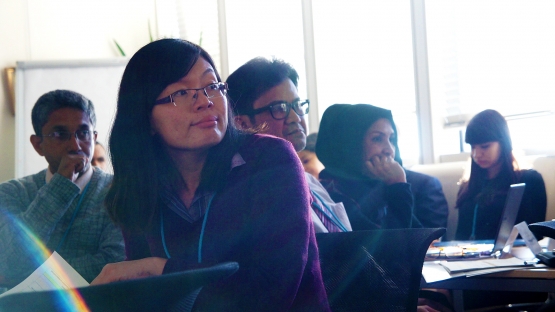Cancer care specialists from nine countries in Asia and the Pacific joined experts in Vienna this month to develop ways to improve the quality of life for cancer patients through pain relief – or palliative care.
“Even in countries where resources are very limited, we can still try to minimize the pain and suffering felt by cancer patients,” said Nazmun Naher Shanta, radiation oncologist at Bangladesh’s National Institute of Cancer Research. “We realize the need for us as health specialists to work with policy makers and community leaders to implement quality services that help suffering patients.”
The need to expand quality palliative care services in Asia and the Pacific is enormous, Shanta said. According to the World Health Organization’s Global atlas of palliative care at the end of life, two of the nine countries represented at the workshop do not have related services in place, six provide only partial care and only one country has recently started integrating palliative care services in its national health system.
The workshop enabled participants to better understand the role of radiotherapy and other forms of treatment in palliative care and to develop short-term action plans to improve access to these services.





